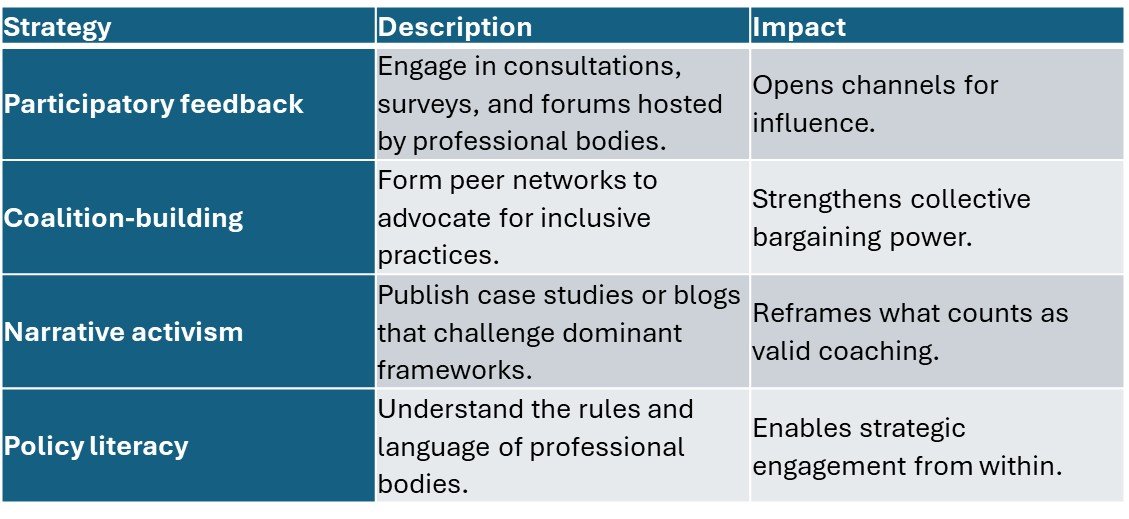#138 In coaching, We all Count!: applying Shotton’s thinking to the coaching profession
Pete Shotton’s We All Count (2016) (see diagram) was written about education; however, it offers a compelling lens for examining power dynamics in coaching, particularly the relationship between professional bodies and individual coaches. His reframing of Transactional Analysis life positions - especially the ‘I count / I don’t count’ and ‘You count / You don’t count’ axes - helps illuminate how authority and compliance are maintained (see status quo line), and how dialogue can become a tool for emancipation (‘I count/you count’).
The Power Structure: Professional Bodies vs. Coaches
Shotton describes a system where:
The ‘ruling class’ (eg, professional bodies) sets standards, imposes regulations, and requires compliance.
The ‘underclass’ (eg, coaches) are expected to conform, show gratitude, and know their place within the system. They only ‘count’ if they are members of the professional body, particularly credentialed or accredited members. Arguably, the same can be said for alumni of the leading coaching universities.
This mirrors how coaching bodies often define competencies, ethics, and accreditation pathways, while coaches may feel constrained or voiceless - especially those with divergent or emergent practices (eg, more creative or neurodivergent-inclusive approaches, or practices that combine other offerings such as advisory work with coaching).
Emancipation through dialogue with power
Cynical coaches who reject professional bodies will find themselves ‘closed off’ in the bottom triangle of the model – a hopeless position – feeling they cannot accept the constraints of a professional body, while at the same time feeling that because they cannot, they ‘don’t count’.
Shotton’s model suggests that transformation occurs when both parties move toward the ‘I count, You count’ position. It strikes me not all professional bodes are alike in this regard. This shift enables:
Dialogue from within
Respectful challenge: Coaches can engage with professional bodies not as rebels but as contributors, questioning assumptions and offering alternatives.
Co-creation of standards: Instead of passive compliance, coaches can propose inclusive, context-sensitive frameworks.
Visibility of lived experience: Sharing stories and practices that fall outside dominant norms helps reframe what ‘competence’ or ‘professionalism’ means.
Psychological Shift
Moving from ‘I don’t count’ to ‘I count’ involves:
Recognising one's expertise and legitimacy.
Refusing to internalise marginalisation (eg, if you’re not ‘credentialed’ or ‘accredited’)
Building alliances with others in similar positions to amplify collective voice.
Practical Strategies for Coaches
Shotton’s work invites coaches to see themselves not as subjects of regulation, but as agents of transformation. By engaging in dialogue with power, rather than resisting it from the margins, coaches can reshape the profession to be more inclusive, dynamic, and responsive to diverse realities.
I suggest progressive coaching supervision can help make the psychological and practical shift sought.
Reflective questions
How would you describe your relationship with your professional body?
How can you be more involved to influence your professional body?
How can coaching supervision help you emancipate your practice?
With thanks to Karen Pratt and my fellow delegates on the Coaching Development TAFY programme for the inspiration.


